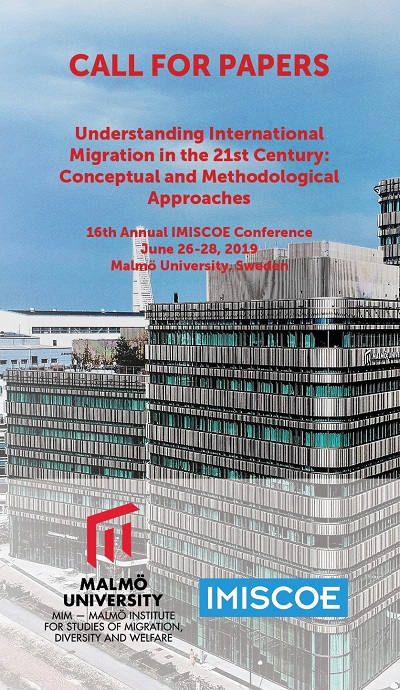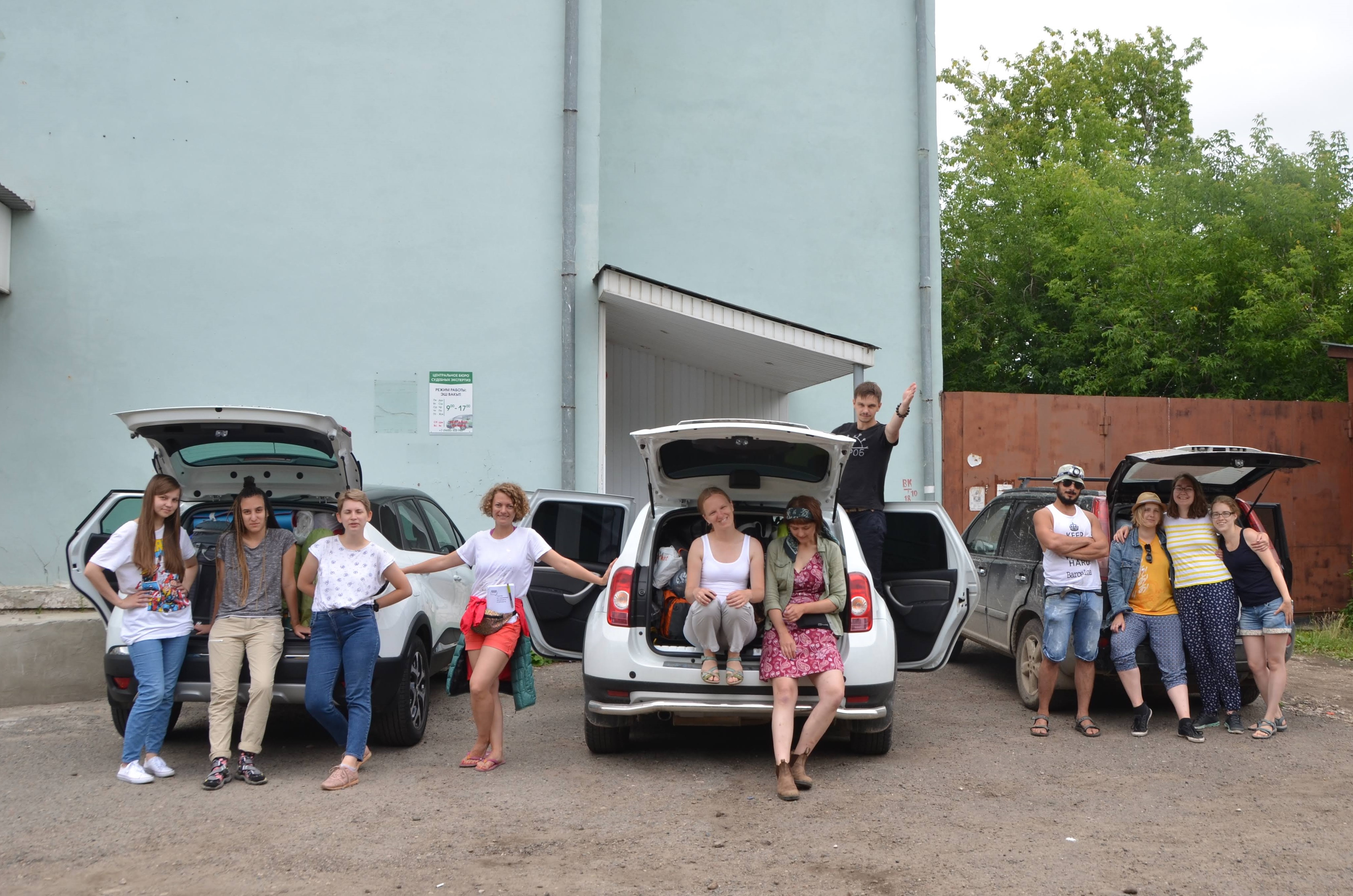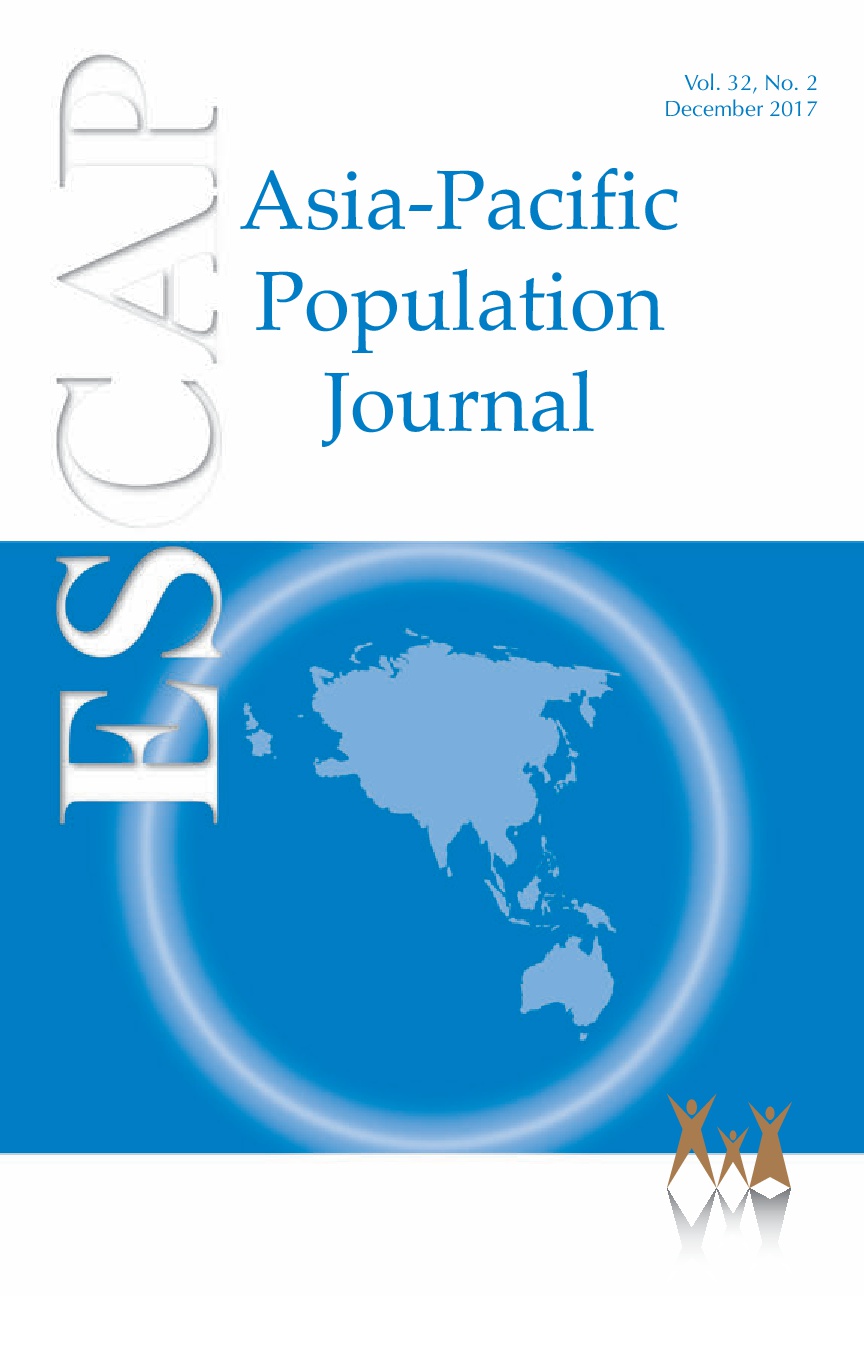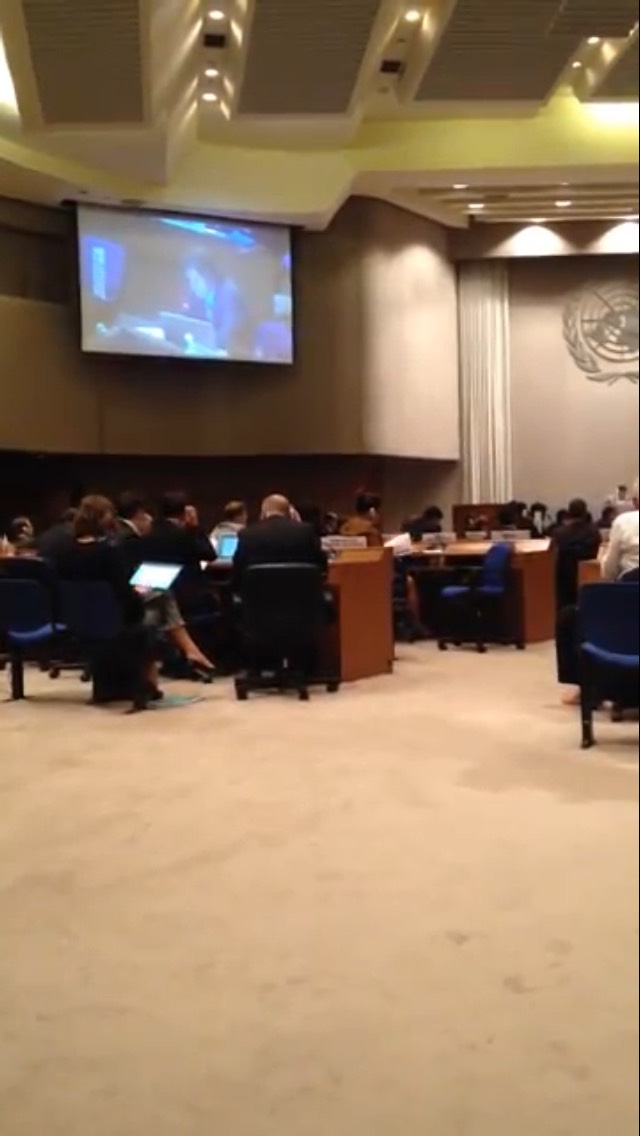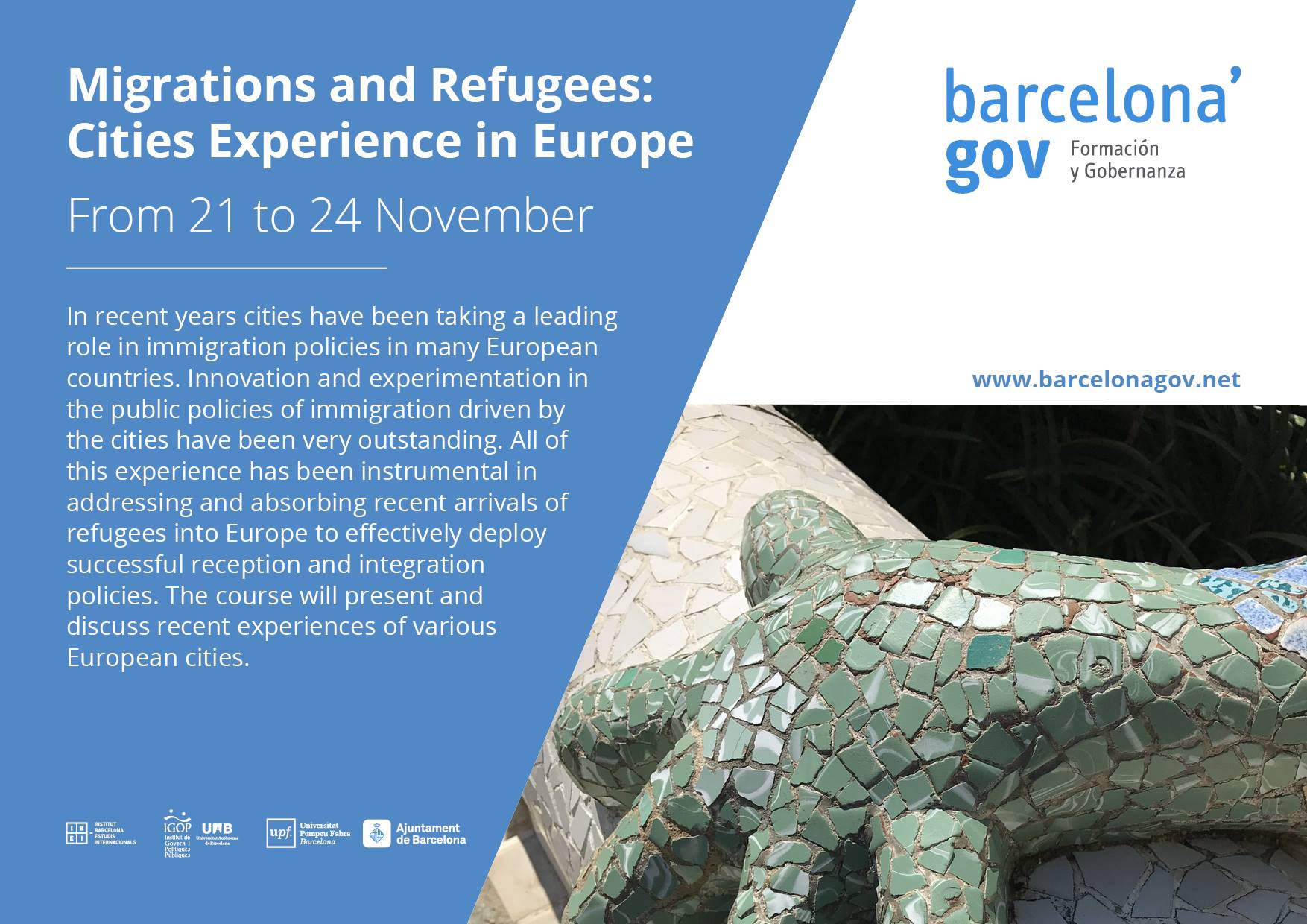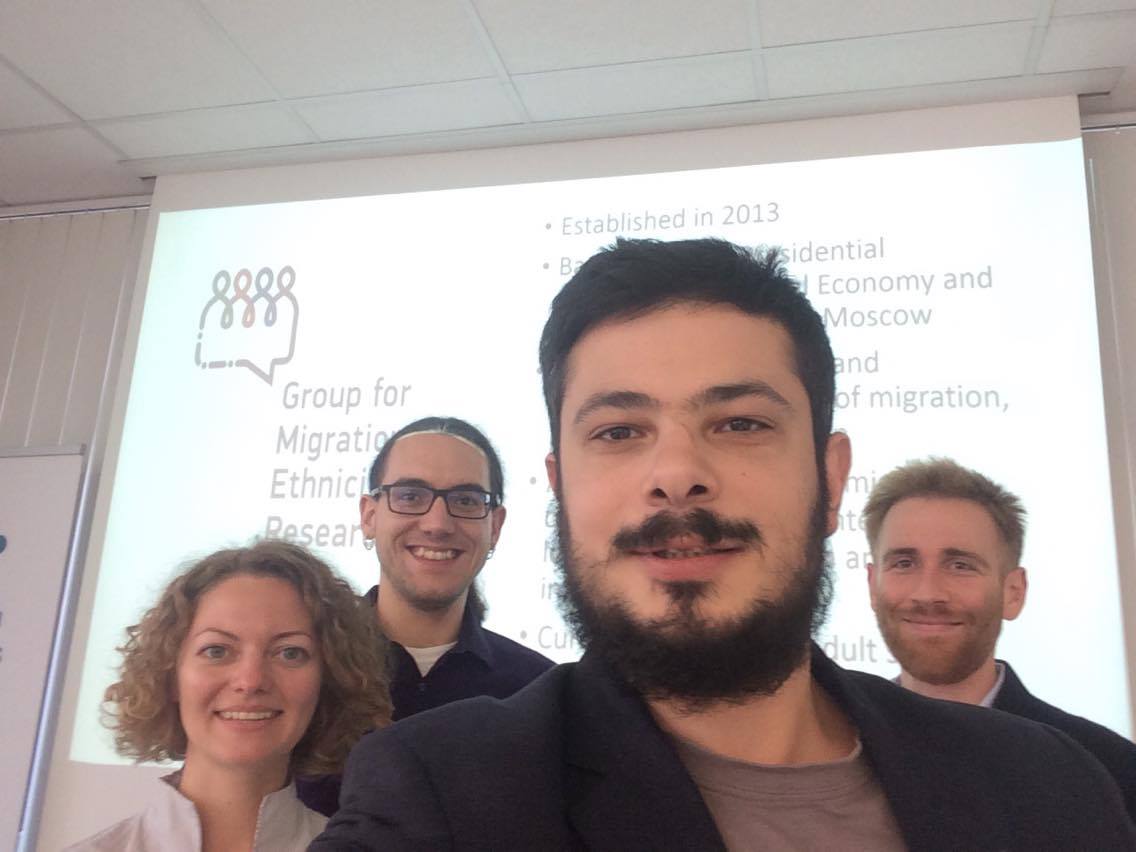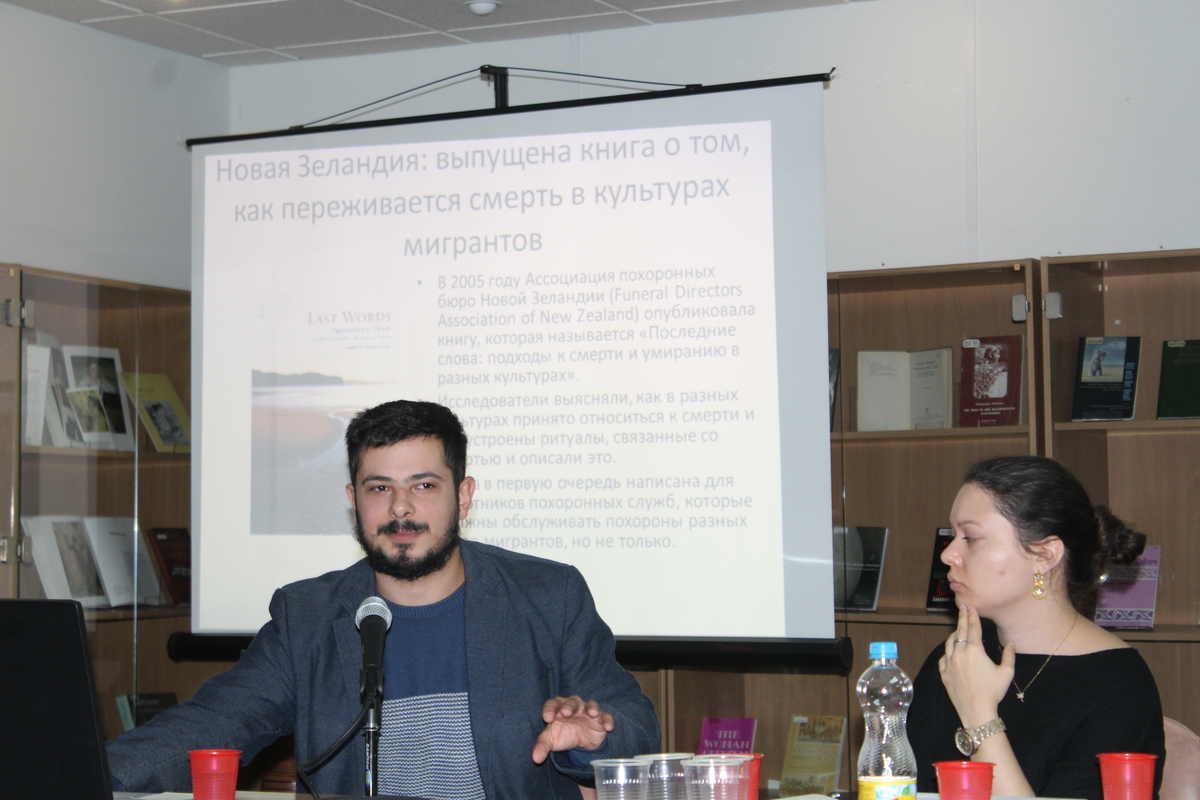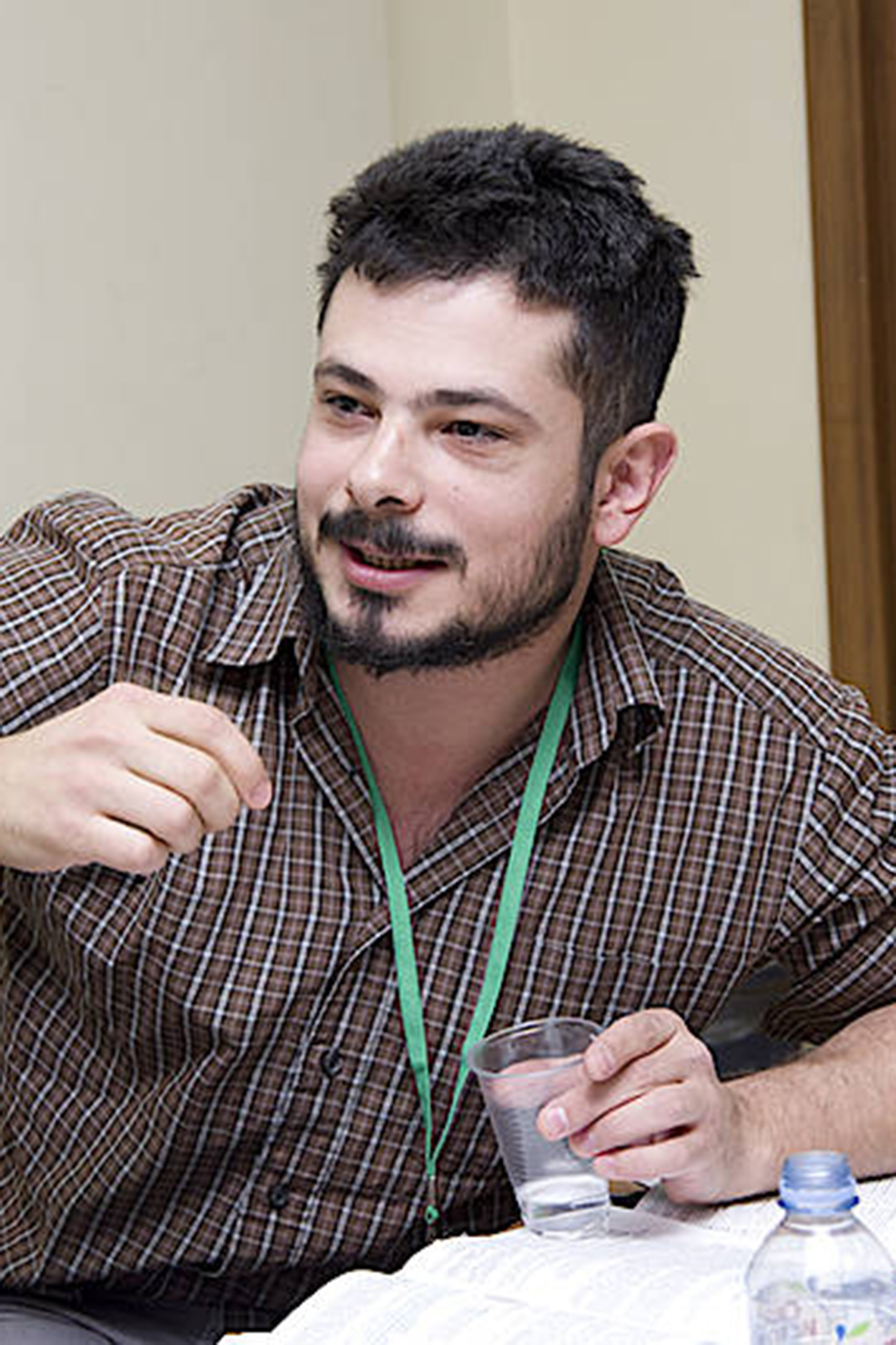| Home » Files |
| Total entries in catalog: 132 Shown entries: 51-100 |
Pages: « 1 2 3 » |
|
Bublikov, V., Varshaver, E., Stepanov, V. (2023). Deconstruction of Population Censuses: Comments and Considerations. Etnograficheskoe obozrenie, (4), 22–242. [in Russian] |
|
Varshaver, E. (2022). Trapped in Double-Irrelevancy: (Re)-Production of Ethnicity in Interactions between Census-Takers and Their Respondents Based on Results of Observations during 2021 All-Russian Census in Dagestan. Monitoring of Public Opinion: Economic and Social Changes, (4(170)), 199–221. [in Russian]
[ Read (269.8 Kb)
]
|
|
“Stop beating the dead primordial horse”: actual agendas in the constructivist research of ethnicity
Varshaver, E. (2022). “Stop beating the dead primordial horse”: actual agendas in the constructivist research of ethnicity. The Russian Sociological Review, 21(3), 31-58. [in Russian]
[ Read (436.1 Kb)
]
|
|
Varshaver, E., (ed.) (2022). On Ethnic Diversity in Modern Dagestan: Students' field trip collection of articles. Authors: M. Gutsunaev, A. Drozdova, E. Kozharinova, A. Kunina, A. Malinovskiy, V. Nazarov, A. Rakacheva, D. Stepanova. Moscow: HSE Publishing House. [in Russian]
[ Read (2.97 Mb)
]
|
|
Varshaver, E., Ivanova, N., Rocheva, A. (2022). Why and When Do Migrants in Russia Come to Homeownership and How Is It Related to Integration?. The Monitoring of Public Opinion: Economic and Social Changes Journal, (2(168)), 223-247. [in Russian]
[ Read (616.6 Kb)
]
|
|
Ivanova, N., Varshaver, E., Rocheva, A. (2022). What Migrants Do Economically Developed Countries Attract and How They Do It: Analysis of International Cases. Journal of Siberian Federal University. Humanities & Social Sciences, 15(6), 811-825. [in Russian]
[ Read (429.0 Kb)
]
|
|
Ivanova, N. (2022). The Effect of Residential Concentration of Migrants on the Integration of Second Generation Migrants in Russia. Journal of Siberian Federal University. Humanities & Social Sciences, 13(7), 1112-1125. [in Russian]
[ Read (610.0 Kb)
]
|
|
Varshaver, E., Rocheva, A., Ivanova, N. (2021). Factors and Mechanisms of the Formation of Migrant Residential Concentration Areas Around Markets. The Monitoring of Public Opinion: Economic and Social Changes Journal, (5(165)), 425-449. [in Russian]
[ Read (594.2 Kb)
]
|
|
Andreeva A., Ivanova N., Varshaver E. (2021). Do Kotelniki Qualify as an Ethnic And Migrant Enclave? Case-Study of Residents’ Ethnic and Migration Origins in Kotelniki, Moscow’s Satellite City. Urban studies and practices, 5(4), 54-72. [in Russian]
[ Read (3.96 Mb)
]
|
|
Varshaver, E., Rocheva, A., Ivanova, N., Andreeva A. (2021). Migrants in Russian cities: settlement, concentration, integration. Moscow: Publishing House "Delo" RANEPA. 226 p. [in Russian]
[ Read (4.56 Mb)
]
|
|
Rocheva A., Varshaver E., Ivanova N. (2020) ulnerable Groups in Disasters: Solidarity and Trust in Government as the Basis for Migrant Strategies in Russia During the COVID-19 Pandemic. Monitoring of Public Opinion: Economic and Social Changes, (6(160)), 488-511. [in Russian]
[ Read (436.0 Kb)
]
|
|
Varshaver, E. (2020). Intercultural Events in Russia. Intercultural and interconfessional management: Theory and Practice. A Handbook. E. Varshaver, E. Idrisov, E. Markwart, E. Pain, A. Sitnikov, I. Starodubrovskaya. Editor: I. Starodubrovskaya. Moscow: Izdatel'stvo "Prospekt". P. 215-238. [in Russian] |
|
Varshaver, E., Ivanova, N., Rocheva, A. (2020). Migrants in Russia during the COVID-19 pandemic: survey results. RANEPA. 81p. [in Russian]
[ Read (2.42 Mb)
]
|
|
Rocheva, A., Varshaver, E. (2020). Migration Intentions of Youth with and without Migrant Backgrounds: a Russian Case. The Monitoring of Public Opinion: Economic and Social Changes Journal, (3), 295-334. [in Russian]
[ Read (635.5 Kb)
]
|
|
Varshaver, E., Rocheva, A., Ivanova, N., Ermakova M. (2020). Residential Concentrations of Migrants in Russian Cities: Is There a Pattern?. The Russian Sociological Review, 19(2), 225-253. [in Russian]
[ Read (673.6 Kb)
]
|
|
Ermakova M., Varshaver, E., Ivanova, N. (2020). Features of settlement and integration of migrants in Moscow and Moscow region. RUDN Journal of Sociology (Vestnik Rossiiskogo universiteta druzhby narodov. Seriya: Sotsiologiya), 20(2), 363-381. [in Russian]
[ Read (695.1 Kb)
]
|
|
Varshaver, E., Rocheva, A., Andreeva A., Ivanova, N. (2020). Migrants' settlement patterns in global cities and their determinants: Paris, Singapore, Sydney and Moscow. Part II. The Monitoring of Public Opinion: Economic and Social Changes Journal, (2), 457-485. [in Russian]
[ Read (536.9 Kb)
]
|
|
Varshaver, E., Rocheva, A., Andreeva A., Ivanova, N. (2019). Migrants' settlement patterns in global cities and their determinants: Paris, Singapore, Sydney and Moscow. Part I. The Monitoring of Public Opinion: Economic and Social Changes Journal, (6(154)), 479-504. [in Russian]
[ Read (552.3 Kb)
]
|
|
Kazenin K., Kozlov V., Mitrofanova E., Varshaver, E., Rocheva, A. (2019) The Birth Rate among Foreign Migrants in Russia and the Factors Affacting It (Analysis of Survey Date). The Bulletin of the Institute of Economics of the Russian Academy of Sciences, 2019. (1), 100-111. [in Russian]
[ Read (354.8 Kb)
]
|
|
Varshaver, E., Rocheva, A., Ivanova, N. (2019). Second Generation Migrants Aged 18–35 in Russia: Research Project Results. The Monitoring of Public Opinion: Economic and Social Changes Journal, (2(150)), 318-363. [in Russian]
[ Read (1.04 Mb)
]
|
|
Rocheva, A., Varshaver, E., Ivanova, N. (2019). Integration of Second-Generation Migrants from Transcaucasia and Central Asia in the Tyumen Region: Social, Linguistic and Identification Aspects. Vestnik Arheologii, Antropologii i Etnografii, (2(45)), 166-175. [in Russian]
[ Read (351.6 Kb)
]
|
|
Rocheva, A., Varshaver, E., Ivanova, N. (2019). Integration of Second-Generation Migrants from Transcaucasia and Central Asia in the Tyumen Region: Educational Trajectories and Employment. Vestnik Arheologii, Antropologii i Etnografii, (1(44)), 136-145. [in Russian]
[ Read (342.0 Kb)
]
|
|
A new article "Localized Migrant Communities in the Absence of Ethnic Neighbourhoods: A Glimpse into Moscow’s Ethnic Cafés" authored by Group's researchers Evgeni Varshaver and Anna Rocheva has recently been issued in Urbanities - Journal of Urban Ethnography, vol. 8, #2.
|
|
We invite you to participate in the research panel on the youth with migrant background in various settings, which we are planning to organize at the Annual IMISCOE conference which will be held in Malmö, Sweden in June 26-28, 2019. [more]
|
|
Call for participation: Panel Session Youth with Migrant Background in ‘Old’ and ‘Emerging’ Destinations at IMISCOE 2019 (June 26-28, 2019 in Malmö) Dear colleagues, We invite you to participate in the research panel on the youth with migrant background in various settings, which we are planning to organize at the Annual IMISCOE conference which will be held in Malmö, Sweden in June 26-28, 2019. The two main sets of factors shaping trajectories of the youth with migrant background in the destination countries can be designated as ‘context of reception’ and ‘characteristics of migrant families’. Presumably, established ‘immigration countries’ will have a different story of integration of youth with migrant background in comparison with the ‘emerging migration magnets.’ At the same time, the larger share of theoretical literature on the youth with migrant background has been created on the basis of research in the ‘classical’ immigrant receiving states, first of all – USA. To what extent does it remain relevant for other contexts, such as ‘emerging migration magnets’? To address this question, at this research panel we aim at bringing together scholars working on a wide array of topics related to the integration paths of the youth with migrant background (2nd generation, generation 1.5, etc) in a variety of settings – ‘classical’ as well as ‘emerging’ immigrant receiving states, rural and urban contexts. We also encourage scholars to look at the various temporal dimensions – nowadays as well as 100 years ago. Possible topics include but are not limited to the educational and labour market aspirations and trajectories of the youth with migrant background, their social ties and transnational practices, marriage and romantic relations, citizenship and belonging, parenting cultures and gender relations, values and norms, identification and religion. The requirement of the IMISCOE conference organizers implies inclusion of the paper proposals together with the panel proposal. Thus, if you would like to participate in the panel, please, send us the abstract of about 250 words with the name and affiliation no later than November 23rd. This timeframe will allow for your individual submission, in case we are not able to include your paper in the session. The email for abstract submission and any related questions is center.migration.ethnicity@gmail.com. Best regards, Evgeni Varshaver and Anna Rocheva Group for Migration and Ethnicity Research RANEPA |
|
In July 2018 researchers of the Group organized and held a student car expedition to the Middle Volga region of Russia, where they focused on ethnicity in poliethnic contexts.
|
|
Ivanova, N., Varshaver, E. (2018). Peculiarities of the Legal Status of Labor Migrants from the EAEU and other CIS Member States in Russia: a Comparative Analysis (Beginning). Migration Law, (3), 3-8. [in Russian]
[ Read (127.0 Kb)
]
|
|
Ivanova, N., Varshaver, E. (2018). Peculiarities of the Legal Status of Labor Migrants from the EAEU and other CIS Member States in Russia: a Comparative Analysis (Final Part). Migration Law, (4), 9-16. [in Russian]
[ Read (141.8 Kb)
]
|
|
An article by the lead researcher of the group dr. Anna Rocheva and the head of the group dr. Evgeni Varshaver 'Gender Dimension of Migration from Central Asia to the Russian Federation' was published at Asia-Pacific Population Journal, Vol. 32, # 2.
|
|
Varshaver, E. (2017). Neurophysiology of Ethnicity (based on foreign literature). Social Psychology and Society, 8(4), 43-54. [in Russian]
[ Read (138.4 Kb)
]
|
|
Varshaver, E., Rocheva, A., Ivanova, N. (2017). Second-Generation Migrants in Russia of the Age 18–30 Years Old: Characteristics of the Structural Integration. Social Policy and Sociology, 16(5), 63-72. [in Russian]
[ Read (593.2 Kb)
]
|
|
Varshaver, E., Starodubrovskaya, I. (2017). Who Justifies Violence in Dagestan and Why? A Comparative Analysis of Value Profiles of Muslim Religious Groups in Dagestan. State, Religion and Church in Russia and Worldwide, 35(3), 202-233. [in Russian]
[ Read (978.5 Kb)
]
|
|
On November 8, 2017 Anna Rocheva presented a paper "Migration from Central Asia to Russia: Gender Dimension" at The Asia-Pacific Regional Preparatory Meeting for the Global Compact for Safe, Orderly and Regular Migration in Bangkok at the invitation of the UNESCAP.
|
|
In November researcher Nataliya Ivanova took part in the course "Migrations and Refugees: Cities Experience in Europe", it was organized by Institut Barcelona d’Estudis Internacionals (IBEI).
|
|
On November 16-18 the head of the Group Evgeni Varshaver and the lead researcher Anna Rocheva participated in the conference "Labor market and Economic perspectives on large-scale Migration in Sociology" held in Mannheim (Germany). They presented a paper "Young adult second generation migrants in Russia: First evidence from the wide-scale research project".
|
|
Varshaver, E., Rocheva, A., Ivanova, N. (2017). Integration of the Second Generation Migrants aged 18-30 in Moscow: First Results of the Research Project. The Monitoring of Public Opinion: Economic and Social Changes Journal, (6), 63-81. [in Russian]
[ Read (249.1 Kb)
]
|
|
Rocheva, A., Varshaver, E., Ivanova, N. (2017). Playgrounds as Migrant Integration Spaces. Educational Studies Moscow, (2), 167-184. [in Russian]
[ Read (1.36 Mb)
]
|
|
[ Read (5.22 Mb)
]
|
|
По итогам научной-исследовательской работы был представлен научный доклад, подготовленный сотрудниками Центра региональных исследований и урбанистики Евгением Александровичем Варшавером и Анной Леонидовной Рочевой «Интеграция мигрантов второго поколения в возрасте от 18 до 30 лет: результаты пилотного исследования». В докладе были представлены результаты пилотного исследования интеграционных характеристик мигрантов второго поколения в России, в частности, продемонстрированы соотношения уровня образования, позиций на рынке труда и уровня заработных плат мигрантов второго поколения и сопоставимых россиян, в целом; описаны установки и практики, связанные с формированием дружеских и романтических отношений; указаны типичные пэттерны идентичности представителей этой группы. Кроме этого, в докладе была эксплицирована методология исследования, а также указаны дальнейшие шаги для проверки гипотез, сформулированных в ходе пилотного исследования. В мероприятии приняли участие дискуссанты Карина Джаниеровна Пипия, социолог Левада-Центра, Арсен Гарегинович Алексанян, директор музея культуры наций и специальный гость Лариса Александровна Паутова, управляющий директор Фонда «Общественное мнение». Модератором встречи выступила Ирина Викторовна Стародубровская, руководитель Научного направления "Политическая экономия и региональное развитие" ИЭП им. Е.Т.Гайдара.
|
|
On November, 7 at the Institute for Economic Policy (Moscow) the researchers of the Group made a presentation “Second Generation Migrants in Russia: the Results of the Pilot Stage of the Research”. For the ppt. press here. |
|
On April, 19-20 Anna Rocheva, the lead researcher of the Group, made presentations “Migration, Development and Gender” and “The Outcomes of Language Examination for Labor Migrants in Russia” at the conference "Enhancing economic and social benefits of international migration in North and Central Asia" held by UNESCAP in Moscow.
|
|
On September, 22 Evgeni Varshaver, the head of the Group, made a presentation “Integration of Migrants in Moscow Neighborhoods” at the conference “East and West: Ethnic and Confessional Communities” held at the All-Russian State Library for Foreign Literature, Moscow.
|
|
Лекция в рамках курса "Полевая социология" |
|
Первые результаты исследования мигрантов второго поколения в России |
|
Выступление на Глазычевских чтениях |
|
Лекция в Библиотеке Достоевского |
|
Выступление Анны Рочевой, кандидатки социологических наук, научной сотрудницы Группы исследований миграции и этничности, на мероприятии «Женщины-мигрантки», которое организовало объединение «ОНА». Москва, 8 августа 2017 г. |
|
В рамках курса «Этничность, миграция, интеграция» представлены современные подходы к соответствующим проблемам. Что такое этничность в современных сложных обществах и как о ней имеет смысл разговаривать? Как устроены современные миграционные процессы и как можно иначе ответить на вопрос «Почему люди мигрируют?». Что такое интеграция мигрантов и как не запутаться во множестве терминов, описывающих этот процесс? Курс проходит в форме сорокаминутных лекций с последующим сорокаминутным обсуждением ключевого для каждой лекции текста. Каждое занятие посвящено одной из проблематик, вынесенных в название курса. |
|
Timeframe: September 2014 - December 2015 |



